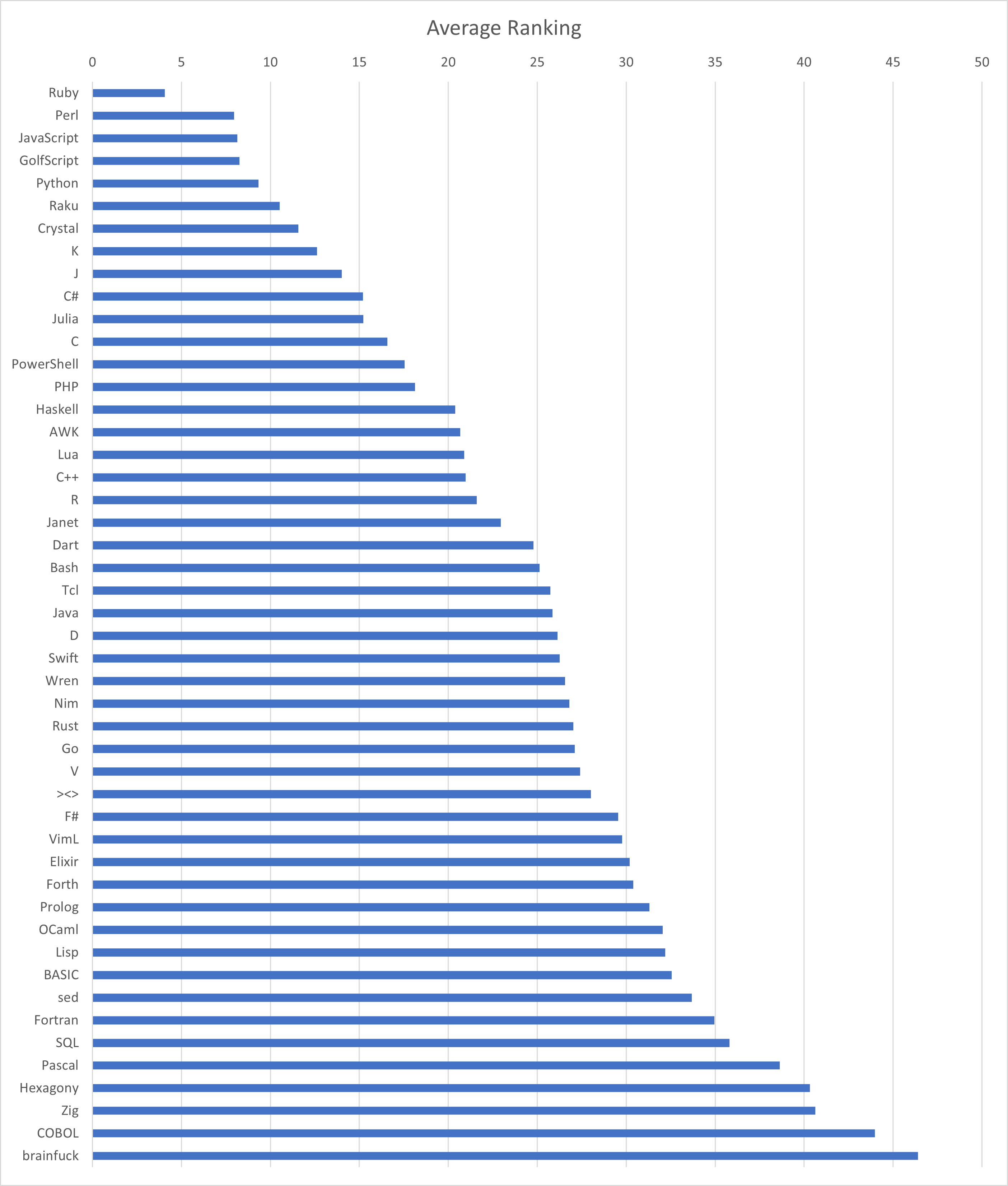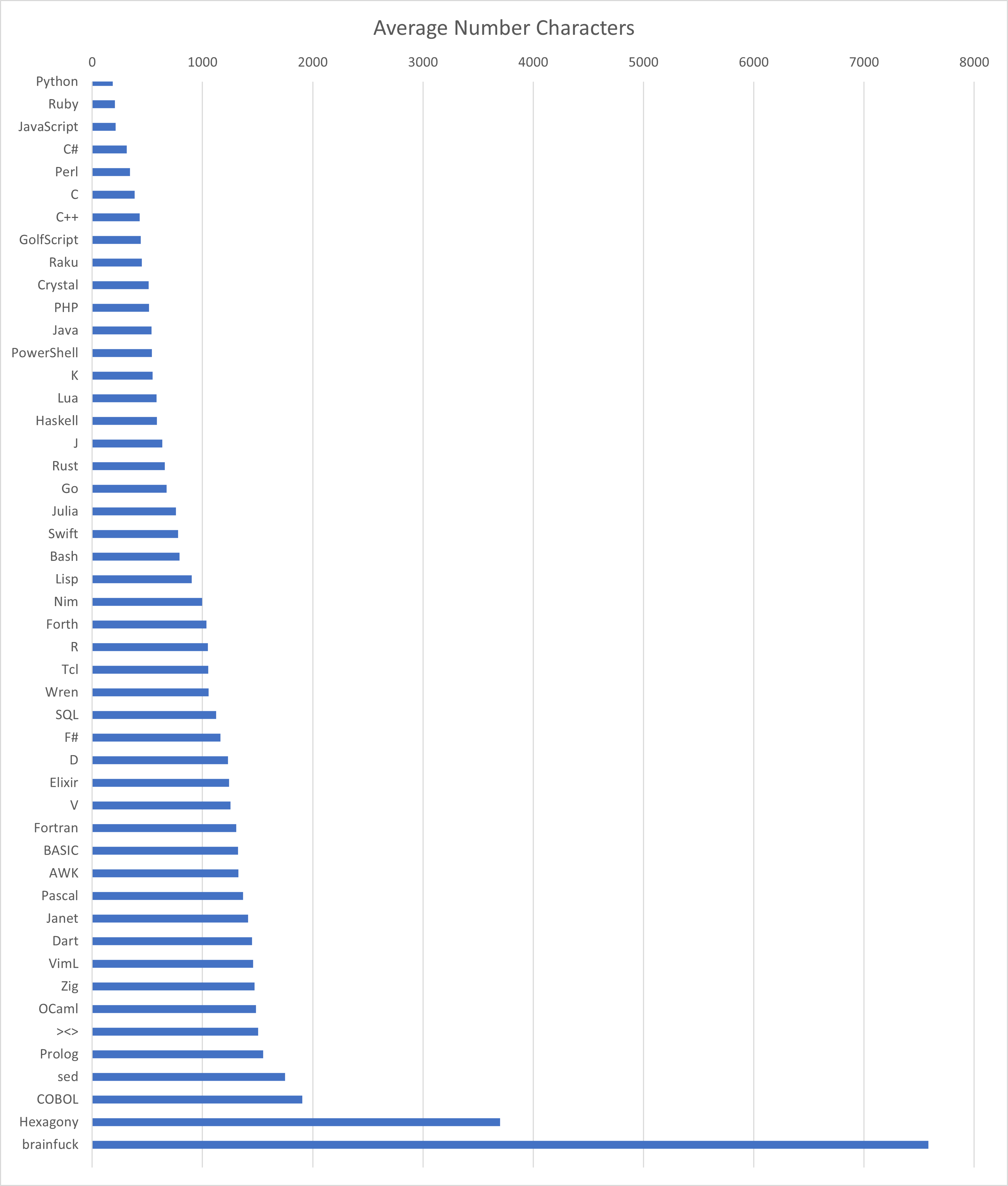this post was submitted on 29 Aug 2023
303 points (95.0% liked)
Programming
17503 readers
33 users here now
Welcome to the main community in programming.dev! Feel free to post anything relating to programming here!
Cross posting is strongly encouraged in the instance. If you feel your post or another person's post makes sense in another community cross post into it.
Hope you enjoy the instance!
Rules
Rules
- Follow the programming.dev instance rules
- Keep content related to programming in some way
- If you're posting long videos try to add in some form of tldr for those who don't want to watch videos
Wormhole
Follow the wormhole through a path of communities [email protected]
founded 1 year ago
MODERATORS
you are viewing a single comment's thread
view the rest of the comments
view the rest of the comments



I think code golf is a great dataset for this kind of analysis specifically because they are artificial and people are paying attention to the number of characters used. Leetcode solutions might be a better option though.
In real world projects there are too many confounding factors. People aren’t implementing servers in brainfuck or websites in C. Even rewrites of a project into another language have more/fewer features. So it’s an apples to oranges comparison.
But a big problem with this dataset is error handling - or really the complete lack thereof. Real code needs to deal with errors and they can add a lot depending on the language.
I was very surprised to see rust and go so close as I find go vastly more verbose due to error handling and need to reimplement things like searching a list. But code golf type problems ignore these types of things that you see in real code.
So there is not really and useful conclusion that can be made except if you spend all day writing code golf problems.
That’s true, and you can also combine multiple errors to have a single catch block or handle each error separately. The perfect dataset for this comparison will need to be written. Code golf data is good enough for a non-academic fun analysis like this one.